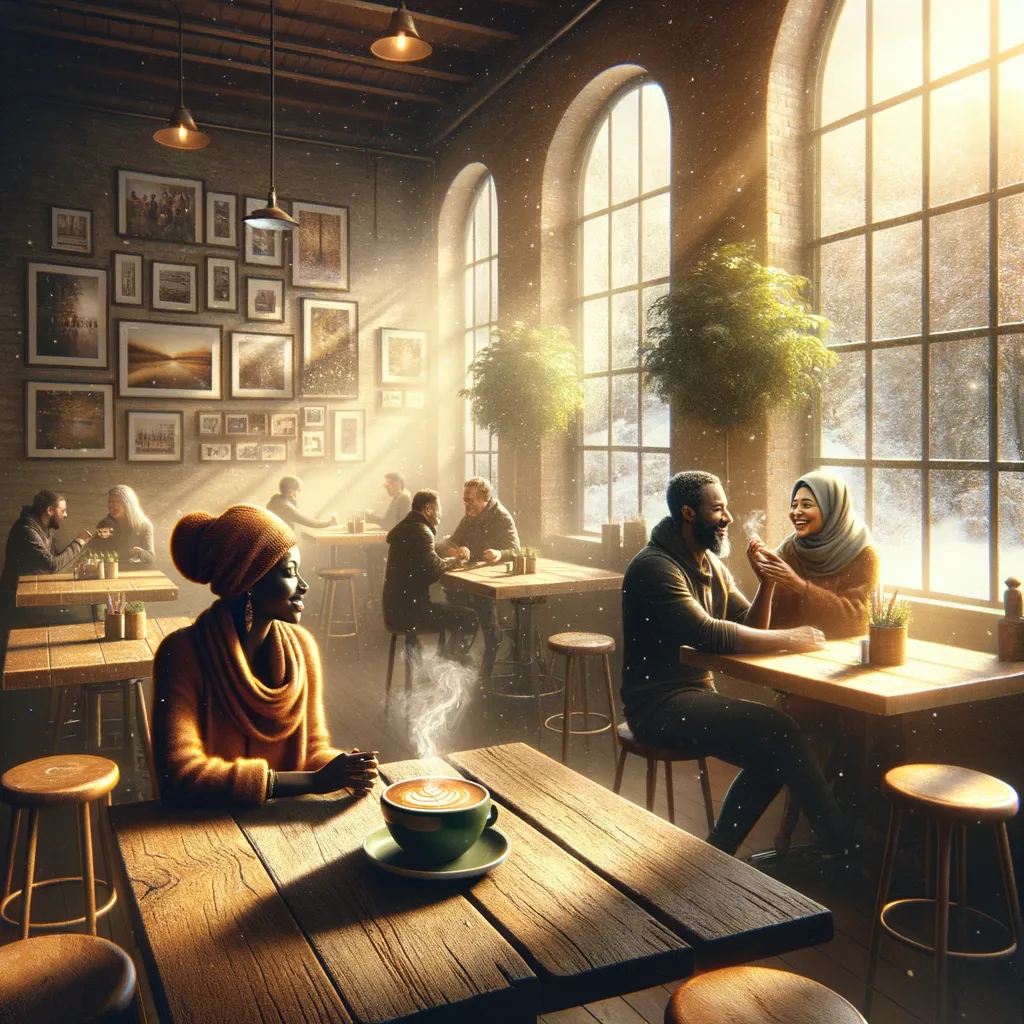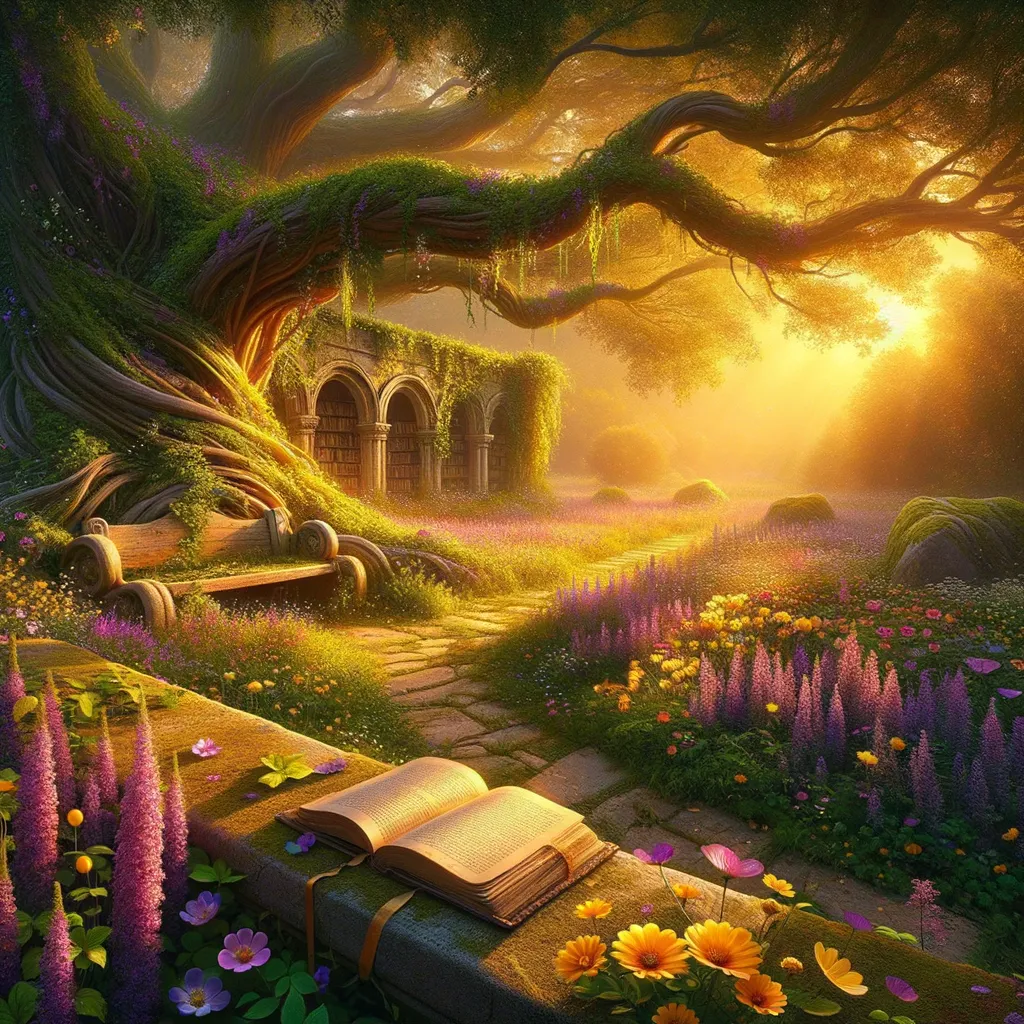Laughter’s Journey: Unveiling Hidden Stories Within
Nestled in a cozy café, a reflective moment unfolds amidst the winter’s gentle embrace, where the aroma of coffee mingles with the laughter of a couple nearby. The evolution of humor emerges as a journey through childhood innocence, teenage sarcasm, and the transformative power of laughter during life’s challenges. A realization dawns: humor transcends mere entertainment, serving as a lifeline that connects shared experiences and vulnerabilities, illuminating the complexities of existence. Each chuckle becomes a thread in a rich tapestry of empathy and resilience, revealing the delightful absurdities hidden in everyday life. In this moment of introspection, a profound question lingers, inviting exploration into the stories that shape laughter and the connections it fosters among us all.
In the memory of December 13, 2013, I found myself nestled in a cozy corner of a bustling café, the air thick with the rich aroma of freshly brewed coffee and the soft murmur of conversations around me. Outside, the world was draped in a delicate veil of winter, the kind that made everything feel a little softer, a little more whimsical. It was on that day, while watching a young couple share laughter over steaming cups, that I began to ponder the evolution of humor in my life—a journey marked by the passage of time, personal growth, and unexpected revelations.
As a child, my humor was simple, a kaleidoscope of slapstick and silly faces that could ignite laughter in an instant. I remember the joy of watching cartoons, where characters slipped on banana peels and spoke in exaggerated tones. Those innocent chuckles came easy, sparked by the sheer absurdity of life. The world was a playground, where laughter was a currency that bought joy without complexity. Yet, as I grew, so did my understanding of the world, and humor began to take on new dimensions.
Teenage years arrived with their own set of challenges, and my humor shifted, adopting a sharper edge. Sarcasm became my shield, a way to navigate the awkwardness of adolescence. I found solace in witty retorts and clever observations, often masking vulnerability with a layer of irony. It was a time when laughter felt like a refuge from the chaos of growing up, yet underneath the surface, it was also a way to bond with friends, creating an invisible thread of connection in a world that often felt isolating.
Yet, the most profound transformation in my sense of humor came during a particularly tumultuous chapter of my life. The weight of adult responsibilities began to press down, and I discovered that humor could be a powerful tool for coping. In moments of stress and uncertainty, I learned to find levity in the mundane, transforming the trivialities of life into sources of amusement. A mishap in the kitchen, a forgotten appointment, or an embarrassing slip of the tongue became fodder for laughter, reminding me that life is often absurd and unpredictable.
It was during this period that I also encountered the power of vulnerability in humor. I began to appreciate the stories of others, those shared experiences that resonated with the universal truths of human existence. Laughter morphed from a mere reaction to a shared understanding, a bridge that connected me to others in profound ways. The stories of heartbreak, joy, and everything in between became the canvas upon which my humor painted a richer, more nuanced picture.
As I sat in that café, a subtle shift in my perspective emerged. I noticed how humor had the ability to heal, to transform pain into something that could be shared and understood. I reflected on the moments when laughter had pulled me from the brink of despair, illuminating the darkness with unexpected light. The realization struck me: humor is not just a tool for entertainment; it is a lifeline, a way to navigate the complexities of life, and an invitation to embrace our shared humanity.
In the years that followed, my humor continued to evolve, influenced by the people I met and the stories I encountered. I found joy in the unexpected, in the delightful absurdities of life that often go unnoticed. The world became a treasure trove of comedic inspiration, from the quirks of strangers to the idiosyncrasies of everyday life. Each encounter enriched my understanding of humor, transforming it into a tapestry woven with threads of empathy, irony, and resilience.
Yet, even as I embraced the lighter side of life, I remained acutely aware of the darker undercurrents that often accompany it. The balance between humor and sensitivity became a delicate dance, a reminder that not every situation warrants laughter. I learned to navigate the complexities of this balance, recognizing when humor serves as a balm and when it risks becoming a shield against deeper truths.
As the café’s warmth enveloped me, I began to see my own journey reflected in the laughter of others. Each chuckle held a story, a glimpse into the lives of those around me. I felt a surge of gratitude for the moments that had shaped my sense of humor, for the laughter that had connected me to friends, family, and even strangers. It was a reminder that humor is not merely a personal experience; it is a shared language, one that transcends barriers and invites us to connect in our humanity.
In that moment of quiet reflection, I was left with a question that lingered in the air, as potent as the aroma of coffee surrounding me: how has your own laughter shaped the way you see the world, and what stories lie behind the smiles you share?
Laughter weaves a tapestry of connection, transforming life’s absurdities into a shared language that binds humanity together in moments of joy and understanding.



